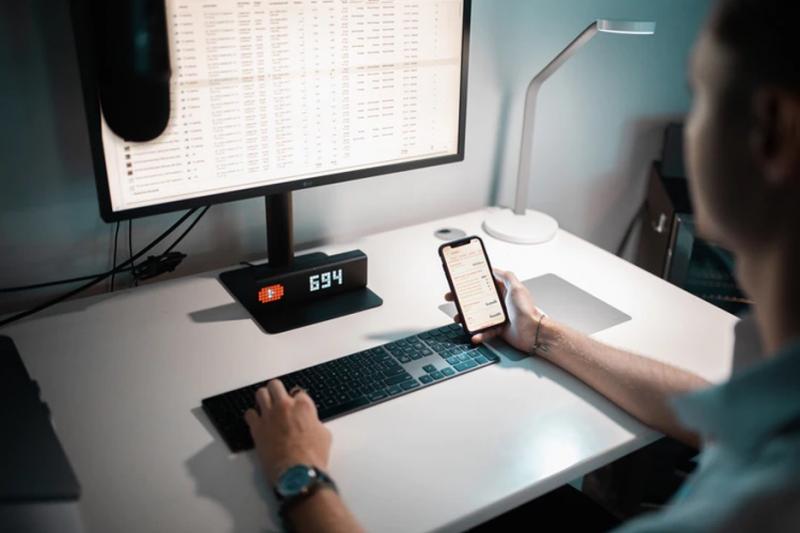Why Is Accuracy Important In Legal Transcription?

Image courtesy to www.unsplash.com
Legal transcription is the task of generating written legal documents from video and/or audio recordings. A person who does this job is called the legal transcriptionist. He or she listens to those audio or video recordings and types down the spoken words, producing a legally valid document.
One important distinction to remember is that a legal transcriptionist is not the same as the court reporter (stenographer). The latter ones are licensed professionals who attend a court hearing and write transcripts of the proceedings. This occurs in real-time, necessitating a rapid tempo of work. Generally, stenographers may type in shorthand, and transform them into complete words and sentences by the computer. Then, the stenographer proofreads the material before delivering the document to the courts and attorneys.
The legal transcription is different because it happens asynchronously. The transcriptionist uses the recorded material and does not have to write in real-time. Any audio recording can be used - physical tape, digital file, video, or audio-only. If you are wondering what types of material can be transcribed, the answer is - pretty much any. Legal transcriptionists usually work with testimonies, court hearings, interrogations, client recordings, legal briefs, etc. Besides, they work with recordings of meetings, conferences, or informal conversations when needed.

Image courtesy to www.unsplash.com
Choosing the legal transcriptionist
As you can imagine, accuracy is held in very high regard in this area of work. Hence, certain rules and conditions need to be followed in the process of legal transcription. When choosing your transcriptionist, pay attention to the important factors such as certifications, experience, area of experteese and accuracy records.
First, make sure your legal transcriptionist is certified. They should have an impeccable record, especially when it comes to handling the data. By rule, personal information is almost always included in legal transcripts. As a result, it is essential for a transcriber to have a strong confidentiality policy and to follow it. If you prefer, you can ask them to sign a non-disclosure agreement. You have the right to know that your sensitive information (for example financial ones) will be secure and protected with the highest level of encryption.
Practice makes perfect. Hence, when choosing your legal transcriptionist, it is wise to find an experienced one. They can also be specialized for different areas and industries, such as health care, business, etc. Good knowledge of terminology is extremely important. It also includes slang, jargon, and other non-common words. For example, the legal proceedings have many Latin words which are usually not so much known to the general population. Context is important as well, and a good transcriptionist needs to understand the subtle nuances as well.
Transcribing errors or inconsistencies might have a detrimental influence on your case. Choosing a legal transcriptionist with a lot of experience can help you avoid this. Today, artificial intelligence and services such as talk-to-text make transcription easier, faster, and more available. However, for legal purposes, that is not enough. It is better to invest in higher quality and have an actual trained and experienced human working on your transcript. Even though the transcriptionists can use those tools to help them, make sure they are the ones who are doing the actual work.
Transcribed statements or depositions provide a written record of what the person stated. To be totally accurate, the transcribed document should read verbatim in comparison to what was said in the tape. The recording captures every sound, pause, and utterance. Skilled transcriptionists will be able to judge what is important to include in the transcript.

Image courtesy to www.unsplash.com
The pricing depends on turnaround time, length and complexity of recordings, language, and other factors. You can definitely make your research and ask around, but we’d like to point out that you can’t afford to lose when preparing a legal case. It is worth investing a bit more in a high-quality transcript, which is 100% accurate and error-free. Law and legal processes are highly formalized. Even the most compelling legal arguments are subjected to intense interrogation and cross-examination. Accurate legal transcription removes unclear components from your case, ensuring that your material is clear and concise. Just one single word, or a comma at the wrong place, can cause your document, or even the entire case to be dismissed. In some instances, the courts have declared a mistrial due to the misunderstanding. That is why you must choose the transcriptionist you trust, who has a strong portfolio and can vouch for his work.
Transcription Outsourcing offers a wide variety of services, which are court-approved and certified. They can help you with different file types, which include (but are not limited to) court transcription services, trial transcriptions, business transcriptions, deposition transcriptions, various hearings (employment, administrative), phone recordings, medical transcriptions and summaries, legal dictations for memos, and many more. They can respond to any turnaround time - even 4 hours. Even though they are US-based and work mostly with English-language recordings, they can also provide services for Spanish-language recordings. The agency accepts over 45 different digital audio file types, in addition to physical copies of audio (CD, USB, cassette tape, etc.). You can even choose the format of your transcript - digital or printed. It goes without saying that the entire process is discreet, secure, and confidential.
More to Read:
Previous Posts:










